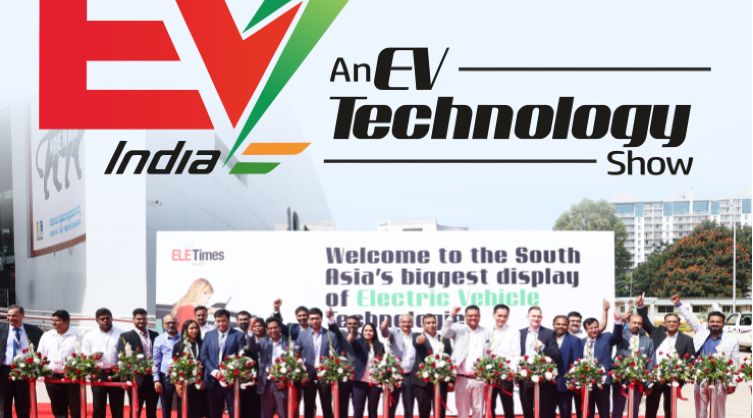India’s automotive sector rising to global dominance
By EPR Magazine Editorial October 26, 2023 5:53 pm IST
By EPR Magazine Editorial October 26, 2023 5:53 pm IST

A general shift toward more environmentally friendly and sustainable transportation options is evident in the notable increase in investments in research, development, and infrastructure for electric vehicles.
In a recent interview with Shailesh Shukla, Director- NDPM, the organiser of the pioneering event, Auto EV India 2023, delved into the dynamics of India’s ever-evolving automotive sector, with a particular focus on electric vehicles (EVs).
Can you share any insights into the level of interest and investment from stakeholders in Auto EV India 2023, and how this reflects the growing importance of electric vehicles in India’s automotive landscape?
The level of interest and investment in Auto EV India 2023 from various parties certainly highlights the growing significance of electric vehicles in India’s automotive industry. Both conventional automakers and recent entrants, as well as government organisations and technology companies, have shown a significant amount of interest in and dedication to the event. This widespread enthusiasm is evidence of the rising awareness of the critical role that electric vehicles will play in India’s automotive future.
A general shift toward more environmentally friendly and sustainable transportation options is evident in the notable increase in investments in research, development, and infrastructure for electric vehicles. Furthermore, regulatory assistance and incentives at the Centre and state levels have further boosted investment in this industry.
To put it briefly, the significant interest in and investments in Auto EV India 2023 reflects the fundamental change in India’s automotive industry, where electric vehicles are essential to meeting long-term environmental sustainability and energy efficiency targets.

What major trends and shifts have you observed in the global automotive industry due to the increasing adoption of electric vehicles, and how are traditional automakers adapting to this change?
In recent years, the global automotive industry has witnessed several significant trends and shifts driven by the increasing adoption of electric vehicles (EVs). Traditional automakers have been actively adapting to these changes in several ways:
1. Transition to EVs: Automakers are incorporating EVs into their core product portfolios, with an emphasis on electric vehicle expansion.
2. Investment in EV Technology: Significant investments are being made in EV technology, encompassing battery R&D, electric drivetrains, and charging infrastructure.
3. Diversification: Traditional automakers are diversifying their product lines to include hybrid and all-electric models, recognising the need for diverse EV options.
4. Collaborations: Partnerships with tech firms, battery manufacturers, and startups are common, facilitating access to advanced technologies for faster EV development.
5. Regulations and Incentives: Compliance with emissions regulations and alignment with government incentives and policies are drivers of change.
6. Charging Infrastructure: Collaboration to expand and enhance charging networks addresses range anxiety and convenience.
With the increasing focus on sustainability and environmental concerns, how are supply chains, materials, and manufacturing processes evolving in the automotive sector to reduce their environmental footprint?The automotive sector is undoubtedly going through significant changes as a result of the increased attention being paid to sustainability. To reduce their environmental impact, automakers are implementing a number of actions. Lean inventory management and improved logistics are helping them increase the effectiveness of their supply chains, which helps reduce transportation-related emissions.
In order to conserve precious resources, more and more people are turning to environmentally friendly materials like lightweight composites and recycled plastics. To reduce their environmental impact, manufacturing processes are also altered by incorporating renewable energy sources, promoting waste minimisation, and enhancing water recycling. Notably, there is a rising focus on the creation of hybrid and electric vehicles, which provide cleaner transportation options. In essence, the automotive industry is actively adopting sustainability by amending every step of its value chain, from sourcing to manufacturing, in order to solve pressing environmental issues on a worldwide scale.
What challenges do you see on a global scale regarding the adoption of electric vehicles, and what strategies or innovations are being pursued to overcome these challenges?
When it comes to the adoption of electric vehicles, there are several challenges on a global level. Infrastructure is still a problem because the adoption of EVs depends on the broad availability of charging stations. In addition, a lot of buyers struggle with the cost of electric automobiles. Concerns are also raised by the limited driving range on a single charge, especially for long-distance travel.
Various approaches and improvements are being developed to address these problems. To lower the cost of EVs, governments are providing incentives like tax cuts. Businesses are spending money on research to advance battery technology, increase driving ranges, and shorten charging times. EVs are also becoming increasingly useful for everyday use because of the expansion of fast-charging networks.
EVs’ negative environmental effects are also being reduced by advancements in grid technology and the incorporation of renewable energy sources. Despite certain challenges, the global shift toward electric vehicles is being fueled by a combination of rules, incentives, market demand, and technological innovations.
In terms of vehicle types, which segments of the electric vehicle market (e.g., two-wheelers, cars, commercial vehicles) are witnessing the most significant growth and innovation in India, and why?
India is currently undergoing a significant transformation in the realm of electric vehicles (EVs), with a growing preference, particularly for electric two-wheelers. While it is undeniable that EV cars present compelling advantages in terms of cost-efficiency and reliability, Indian consumers are exhibiting a heightened inclination towards electric two-wheelers. This inclination can be attributed to the abundant availability of high-quality EV manufacturers catering to household requirements, complemented by government incentives, including subsidies, tax benefits, and policy reforms, which have further stimulated interest and adoption in the electric two-wheeler segment.
How has the government’s policy support and incentives, such as subsidies and charging infrastructure development, impacted the EV market in India, and what additional measures do you think are needed?
The policy support and incentives provided by the government have had a big impact on the Indian EV market. Electric vehicles are becoming more appealing to consumers thanks to subsidies and improvements in the infrastructure for charging. Due to subsidies, the initial costs of EVs have gone down. Range anxiety has been reduced and overall EV convenience has improved as a result of the expansion of the charging infrastructure.
However, other initiatives are required to help the EV market grow even more. Keep or expand cost-competitive incentives, such as financial incentives, tax reductions, and lower GST. Establish recycling/disposal options, encourage local EV component production, and build smart rural charging infrastructure. To secure India’s EV future, implement a long-term policy framework for battery technology and R&D in sustainable energy.
We use cookies to personalize your experience. By continuing to visit this website you agree to our Terms & Conditions, Privacy Policy and Cookie Policy.